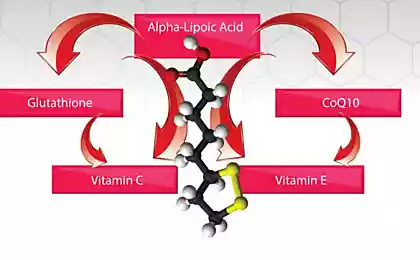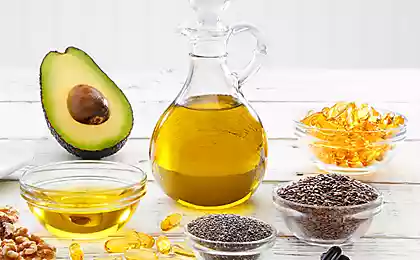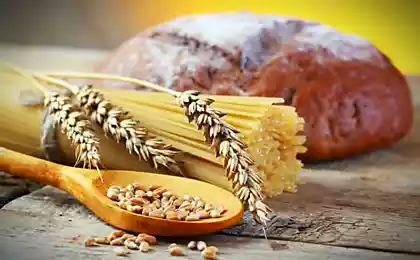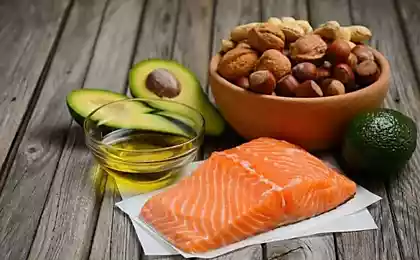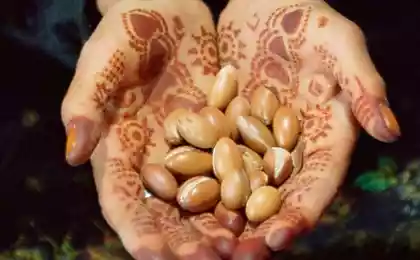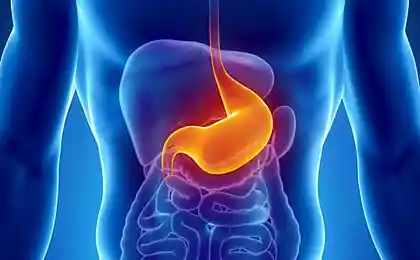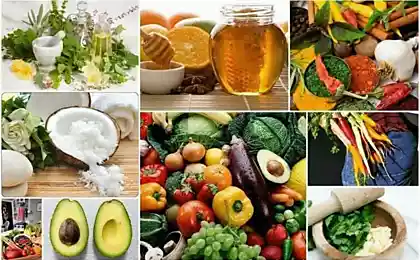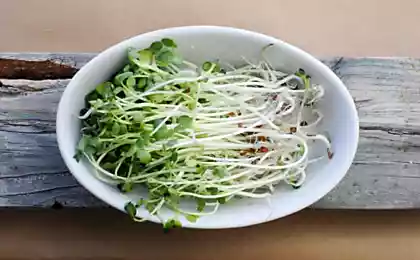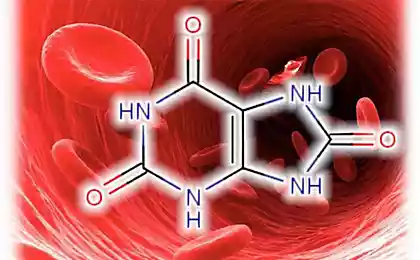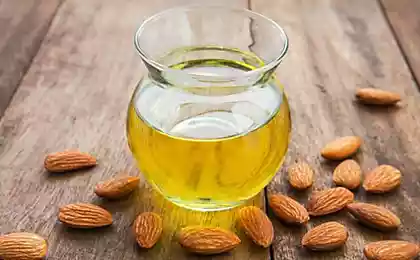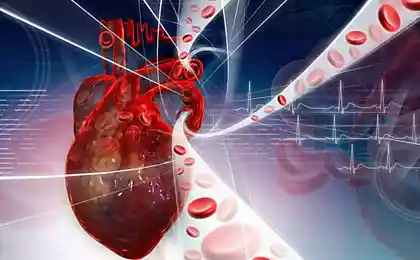528
How does the no carb diet and why it is not necessary to use
Many have heard this expression: "Fats burn in the fire of carbohydrates". What it means and how it relates to carbohydrate-free diet, try to understand.
Remember that the universal "fuel" to supply all needs – substance ATP. Its advantage is versatility, the molecule that instantly provides energy for any activity.
The disadvantage is the low energy capacity. Therefore, cells store energy in the form of ATP, and other substances, which are more valuable as energy reserves. Basically it is carbohydrates (glycogen) and fat (triglyceride).

One of the ways of transformation (conversion) of fats to ATP is. First, fats (triglycerides) contained in fat cells, are broken down into free fatty acids (FFA) and glycerol and enter the blood, which moves them throughout the body. Then cells that need energy, take FFA out of the blood and prepare them to "burning": with the help of enzymes they are converted into another substance, acetyl-coenzyme a(Accoa).
Then, Accoa swallowed up by the descendants of unicellular bacteria, once it has taken root inside our cells – the mitochondria, where it is used as fuel for the Krebs cycle.
The Krebs cycle is a series of different chemical reactions, in which ATP is formed. Cycle it's called this because, once concluded, is repeated again and again: residues of acetic acid from Accoa combine with oxaloacetic acid (oxaloacetate), is a citric acid, then several transformations, eventually the newly formed oxaloacetic acid is again connected with the remnants of acetic acid and again and again. This is a release of energy that is used to generate ATP (for one such circle releases energy, sufficient for the formation of 12 molecules of ATP).
Please note: the story begins with the fact that residues of acetic acid from Accoa have to connect with oxaloacetic acid (it — oxaloacetate). And for that, we understand, oxaloacetate should be enough. If so, then the Kreb's cycle is going well, ATP is formed a lot. Little oxaloacetic acid Krebs cycle fades, energy is not enough.
Now, a source for the synthesis of oxaloacetic acid is glucose. (Strictly speaking, not the glucose, and pyruvic acid produced from glucose as a result of glycolysis). This explains the expression "Fat burns in the flame of carbohydrates": when glucose is enough – enough formed oxaloacetic acid is good Krebs cycle.

The biochemistry of the human. R. Murray and others
But what if oxaloacetic acid is small, the Krebs cycle is bad, but energy is still needed. Then start to occur other events.
First, the body begins to produce glucose itself, more using amino acids. This process is called gluconeogenesis (gluco - glucose, neo - new, Genesis - education), it happens in the liver. But the problem is that stocks of amino acids in the body, have to break down some proteins. First and foremost is blood proteins, proteins of the immune system cells.
Secondly, trying to get power out of Accoa not in the Krebs cycle, and different. The part of Accoa, which has not entered into the Kreb's cycle, split with the formation of so called ketone or acetonemia: acetoxyethyl beta-hydroxybutyric acid and acetone. This process is called ketogenesis. The first two substances are also a fuel, i.e. a source for resynthesis of ATP. But the source is not very efficient: compared with the Krebs cycle, the use of Accoa in ketogenesis yields much less ATP. Ie when ketogenesis, to obtain the same amounts of ATP, fat to spend much more compared to the Krebs cycle.
Figuratively speaking, if we compare ATP with gasoline, and grease – with money for its purchase, the ATP "bought" as a result of the Krebs cycle – cheap, as a result of ketogenesis – road. And to fill the gas tanks of our "machines" (i.e. the body) for life, getting "gasoline" due to ketogenesis, we will have to spend "money" (fat) and much more.
But do not rush joyfully to abandon the carbohydrates, following the recommendations of a pseudo-guru type, Dr. Atkins and other proponents of low carb diets.
Firstly, the ketone bodies acidification of the blood, can create a strain on the kidneys, disrupt metabolic processes.
Secondly, do not forget that glucose is the main energy source for the nervous system. (In fairness say that the nerve cells can eat and ketone bodies, but still the preferred food for them – glucose). If its not enough, then the body, as I wrote above, it starts to produce itself from amino acids in the process of gluconeogenesis.
Even if a person eats normal amounts of protein, use part of it for the production of glucose competes with the use of amino acids for building proteins, including muscle. Protein synthesis is slowed down, and reduced the energy cost of it. In addition to the loss of muscle moving to slow metabolism.
Someone who knows about this competition to use amino acids, may decide to eat more protein. Suppose, he thinks, will be enough protein and as a building material, and for production of glucose.
However, this is not an option. Not the fact that all of the protein ingested, and will not cause harm to the body. The possibility of absorption of protein is different for everyone. Although the upper bounds in the ability to metabolize protein is not detected how to assimilate protein that your body, is unknown. This will depend on the efficiency of the digestive system: the power of enzyme systems, gastric acidity, the composition of the microflora living in your large intestine.
Not digest protein in the small intestine, caught in the thick – begins processing putrefactive organisms living there. Simply put, begins to rot. Beneficial bacteria are dying, putrid rejoice, breed, body is saturated with toxins. In short, the safe intake of protein at everyone, it is better not to exceed.
Moreover, foods that contain carbohydrates, including the so-called prebiotics – needed food for our friendly bacteria living in the large intestine, hindering the reproduction of harmful and synthesizing for us the different nutrients. You didn't feed them carbohydrates, they feel bad, to die in their place populated by bacteria-enemies.

In General, it is not wise, eat everything (except hazardous) in moderation, stick to the basic principles of good nutrition.
If you still want to experiment with low-carb diet, minimize risks. For example, practice it in short cycles of 1-2 days. In principle, for a healthy person useful any irregularity in the feed: the days when a lot of carbohydrates and little proteins — and Vice versa; the days when the food comes enough calories and short periods of fasting (short!).
All this trains different regulatory system maintains sensitivity to insulin and amino acids to help stimulate protein synthesis, the sensitivity of the center of hunger regulation. Short periods of starvation stimulate the secretion of growth hormone. But that's a topic for another conversation.
All the emotions belong to the body: how emotion can mobilize or paralyzeCandida: the fungus inside of us — the foods that should be avoided
In General, it's an article with recommendations: there are no miracle diets do not exist. Provide all necessary components of useful proteins, whole grains, vegetables, fruit, healthy oils and water and do not overeat.published
Author: Dmitry Kalashnikov
Source: kalashnikovdm.livejournal.com/90747.html
Remember that the universal "fuel" to supply all needs – substance ATP. Its advantage is versatility, the molecule that instantly provides energy for any activity.
The disadvantage is the low energy capacity. Therefore, cells store energy in the form of ATP, and other substances, which are more valuable as energy reserves. Basically it is carbohydrates (glycogen) and fat (triglyceride).

One of the ways of transformation (conversion) of fats to ATP is. First, fats (triglycerides) contained in fat cells, are broken down into free fatty acids (FFA) and glycerol and enter the blood, which moves them throughout the body. Then cells that need energy, take FFA out of the blood and prepare them to "burning": with the help of enzymes they are converted into another substance, acetyl-coenzyme a(Accoa).
Then, Accoa swallowed up by the descendants of unicellular bacteria, once it has taken root inside our cells – the mitochondria, where it is used as fuel for the Krebs cycle.
The Krebs cycle is a series of different chemical reactions, in which ATP is formed. Cycle it's called this because, once concluded, is repeated again and again: residues of acetic acid from Accoa combine with oxaloacetic acid (oxaloacetate), is a citric acid, then several transformations, eventually the newly formed oxaloacetic acid is again connected with the remnants of acetic acid and again and again. This is a release of energy that is used to generate ATP (for one such circle releases energy, sufficient for the formation of 12 molecules of ATP).
Please note: the story begins with the fact that residues of acetic acid from Accoa have to connect with oxaloacetic acid (it — oxaloacetate). And for that, we understand, oxaloacetate should be enough. If so, then the Kreb's cycle is going well, ATP is formed a lot. Little oxaloacetic acid Krebs cycle fades, energy is not enough.
Now, a source for the synthesis of oxaloacetic acid is glucose. (Strictly speaking, not the glucose, and pyruvic acid produced from glucose as a result of glycolysis). This explains the expression "Fat burns in the flame of carbohydrates": when glucose is enough – enough formed oxaloacetic acid is good Krebs cycle.

The biochemistry of the human. R. Murray and others
But what if oxaloacetic acid is small, the Krebs cycle is bad, but energy is still needed. Then start to occur other events.
First, the body begins to produce glucose itself, more using amino acids. This process is called gluconeogenesis (gluco - glucose, neo - new, Genesis - education), it happens in the liver. But the problem is that stocks of amino acids in the body, have to break down some proteins. First and foremost is blood proteins, proteins of the immune system cells.
Secondly, trying to get power out of Accoa not in the Krebs cycle, and different. The part of Accoa, which has not entered into the Kreb's cycle, split with the formation of so called ketone or acetonemia: acetoxyethyl beta-hydroxybutyric acid and acetone. This process is called ketogenesis. The first two substances are also a fuel, i.e. a source for resynthesis of ATP. But the source is not very efficient: compared with the Krebs cycle, the use of Accoa in ketogenesis yields much less ATP. Ie when ketogenesis, to obtain the same amounts of ATP, fat to spend much more compared to the Krebs cycle.
Figuratively speaking, if we compare ATP with gasoline, and grease – with money for its purchase, the ATP "bought" as a result of the Krebs cycle – cheap, as a result of ketogenesis – road. And to fill the gas tanks of our "machines" (i.e. the body) for life, getting "gasoline" due to ketogenesis, we will have to spend "money" (fat) and much more.
But do not rush joyfully to abandon the carbohydrates, following the recommendations of a pseudo-guru type, Dr. Atkins and other proponents of low carb diets.
Firstly, the ketone bodies acidification of the blood, can create a strain on the kidneys, disrupt metabolic processes.
Secondly, do not forget that glucose is the main energy source for the nervous system. (In fairness say that the nerve cells can eat and ketone bodies, but still the preferred food for them – glucose). If its not enough, then the body, as I wrote above, it starts to produce itself from amino acids in the process of gluconeogenesis.
Even if a person eats normal amounts of protein, use part of it for the production of glucose competes with the use of amino acids for building proteins, including muscle. Protein synthesis is slowed down, and reduced the energy cost of it. In addition to the loss of muscle moving to slow metabolism.
Someone who knows about this competition to use amino acids, may decide to eat more protein. Suppose, he thinks, will be enough protein and as a building material, and for production of glucose.
However, this is not an option. Not the fact that all of the protein ingested, and will not cause harm to the body. The possibility of absorption of protein is different for everyone. Although the upper bounds in the ability to metabolize protein is not detected how to assimilate protein that your body, is unknown. This will depend on the efficiency of the digestive system: the power of enzyme systems, gastric acidity, the composition of the microflora living in your large intestine.
Not digest protein in the small intestine, caught in the thick – begins processing putrefactive organisms living there. Simply put, begins to rot. Beneficial bacteria are dying, putrid rejoice, breed, body is saturated with toxins. In short, the safe intake of protein at everyone, it is better not to exceed.
Moreover, foods that contain carbohydrates, including the so-called prebiotics – needed food for our friendly bacteria living in the large intestine, hindering the reproduction of harmful and synthesizing for us the different nutrients. You didn't feed them carbohydrates, they feel bad, to die in their place populated by bacteria-enemies.

In General, it is not wise, eat everything (except hazardous) in moderation, stick to the basic principles of good nutrition.
If you still want to experiment with low-carb diet, minimize risks. For example, practice it in short cycles of 1-2 days. In principle, for a healthy person useful any irregularity in the feed: the days when a lot of carbohydrates and little proteins — and Vice versa; the days when the food comes enough calories and short periods of fasting (short!).
All this trains different regulatory system maintains sensitivity to insulin and amino acids to help stimulate protein synthesis, the sensitivity of the center of hunger regulation. Short periods of starvation stimulate the secretion of growth hormone. But that's a topic for another conversation.
All the emotions belong to the body: how emotion can mobilize or paralyzeCandida: the fungus inside of us — the foods that should be avoided
In General, it's an article with recommendations: there are no miracle diets do not exist. Provide all necessary components of useful proteins, whole grains, vegetables, fruit, healthy oils and water and do not overeat.published
Author: Dmitry Kalashnikov
Source: kalashnikovdm.livejournal.com/90747.html



